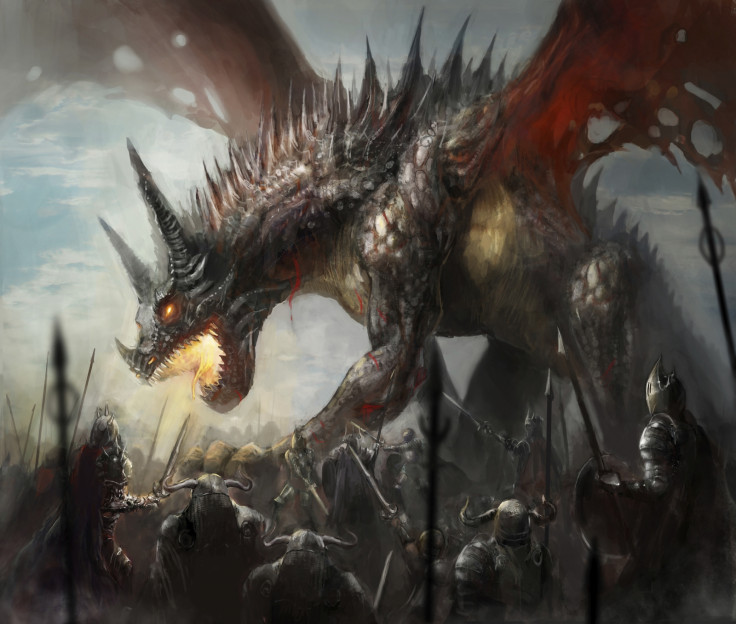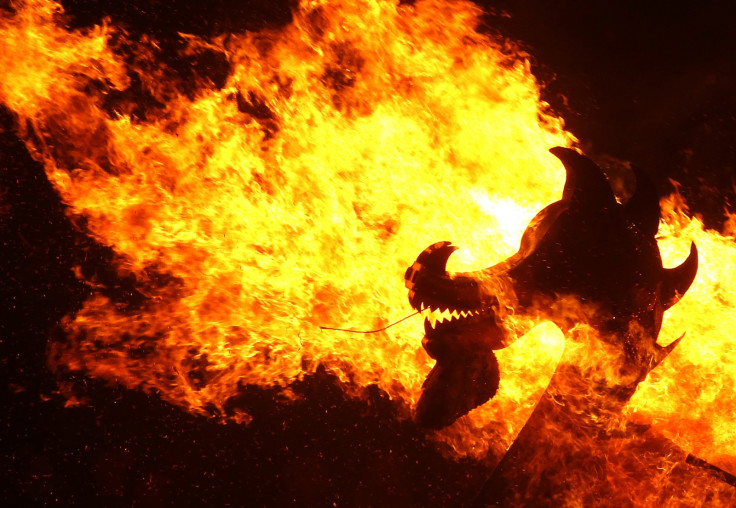Dragons set to rise from their 'Great Sleep' thanks to climate change and economic downturn

Dragons are very real and are set to wake up from their 'Big Sleep' thanks to climate change and the economic downturn, an April fools study has said.
Writing in the journal Nature, a group of British and Australian scientists note that dragons regularly appear in ancient and medieval literature: "What if these legends were rooted in truth? The differences in appearance — some lack wings, some have multiple heads and some seem not to breathe fire — once thought to reflect local traditions, can also readily be explained by speciation."
They said the 800<sup>th anniversary of the signing of the Magna Carta has led to an upsurge in investigations into writings from this period, with one text from the University of Oxford's Bodleian Library providing strong evidence that the field of dragon study needs "urgent re-evaluation".
According to the study, the early medieval period was a "paradise" for dragons, with unusually warm temperatures and an abundance of knights – "the beasts' favourite combatant and food". Wealth was also measured in gold and silver – the creatures' nesting material – meaning populations were able to flourish.
"As Godfrey of Exmouth attests, this was an era when humanity as a whole was fully aware of the existence of dragons and all other magical beings. It is likely that the persistent antisocial behaviour of dragons, and the failure of seemingly powerful magical beings to combat the scourge effectively, led to a deep-seated antipathy: witches became kindling, wizards who dared to imagine a heliocentric Universe suffered the indignity of trial and ridicule."
However, as temperatures and the number of knights began to fall, dragons went into the 'Great Sleep' (or hibernation) at the start of the 15<sup>th century. Since then, dragons have moved into the realm of myth to the point where conventional thinking holds the opinion that they are fantasy creatures.

"Such a creed has been a blessing for dragons, because it spelt an end to the persecutions. Witches are now seen as crazy but harmless women, and wizards as senile old men with nothing better to do than wander around folk festivals in funny hats."
Unfortunately this period of rest will not last for much longer, they note. "First, the global economic downturn has led to a rise in the search for 'buried' treasure, and hoards that serve as homes to resting dragons are an ideal way to bolster a failing economic policy. This strategy of 'quantitative thieving' is highly likely to provoke reprisals from slumbering dragons who awake to discover that their nests have been stripped bare."
Coupled with this, failing action on global warming will lead to increasing temperatures and the restoration of knighthoods in places like Australia will provide a "sustained and delicious food supply".
The researchers say it is "only a matter of time" before they rise again and that scientists and governments must look at means of protection before it is too late.
"Climatic conditions are rapidly reaching an optimum for breeding dragons, and it is only a matter of time before the neurotransfer spell loses its efficacy completely. Further research into fireproof protective clothing is highly recommended — as is an avoidance of honorific titles."
© Copyright IBTimes 2025. All rights reserved.






















